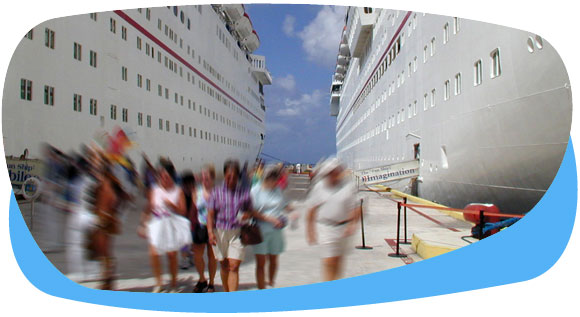The major environmental impact of holidays generally comes from the journey there, because flying releases a lot of greenhouse gases at high altitude, and the further one flies the greater the impact. You may also like to try some of the carbon footprint calculators in the section on Your Footprint.
Cruises
As with air travel, the cruise industry is growing fast. The number of cruise passengers reached 28 million in 2018, generating around 35 billion U.S. dollars. While only representing 2% of the global tourism industry, it is the fastest growing sector over the past 20 years.
It is also largely impossible to regulate, due to the globalised nature of the industry.
If you can, do try to use regular ferries rather than cruise liners, for instance up the coast of British Columbia to Alaska, or between Caribbean islands. It’s also possible to cross the oceans in comfort as a passenger on a container ship, although this costs far more than flying.
Once you arrive
Your holiday can have serious environmental and social impacts once you arrive at your destination too. Water, power and other essentials are often diverted away from local needs to supply exclusive tourist resorts and golf courses, while high levels of waste and pollution from luxury hotels threatens local ecosystems. Communities can even find themselves wholly uprooted make way for tourism developments, most notoriously under the guise of post-tsunami reconstruction, when villages were moved supposedly on grounds of safety, but found their beachfront land handed over to hotel companies. Often the economic returns which might compensate for this are spirited away by multinational tour operators, with few benefits left to the local community. Tourism Concern is a membership organisation that fights exploitation in tourism and promotes responsible tourism.
